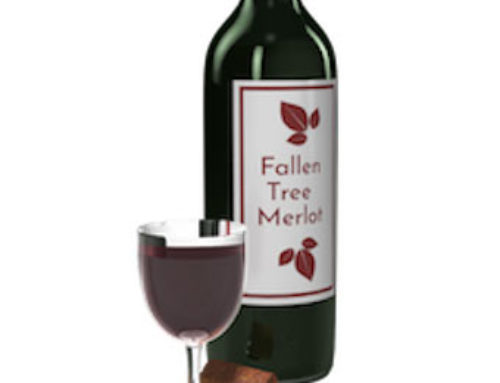End-of-Life Planning
Ducks in a Row – Part 5
 In this final installment of getting your “Ducks in a Row” I will be addressing the must-have end-of-life planning documents. There isn’t anything fun about this topic. I don’t like writing about it, and I’m sure you don’t particularly enjoy reading about it. If it was possible for things to just work out at the end of life, none of us would have to deal with any of this.
In this final installment of getting your “Ducks in a Row” I will be addressing the must-have end-of-life planning documents. There isn’t anything fun about this topic. I don’t like writing about it, and I’m sure you don’t particularly enjoy reading about it. If it was possible for things to just work out at the end of life, none of us would have to deal with any of this.
Unfortunately, nothing ever just works out. Just like the man in the photo, planning is most effective when you do it before you find yourself in a crisis.
If you want to keep peace within your family and avoid costly legal fees, there are three documents you absolutely must get in place before a crisis occurs and decisions have to be made in a state of panic about life support and the distribution of possessions. They are:
- Will or a Trust
- Durable Power of Attorney
- Advance Directive
If you don’t have these documents and you become incapacitated and cannot manage your own health care or financial affairs, a judge will appoint a representative to visit you to determine your physical and mental state. If that individual decides that you cannot care for yourself, the court will appoint a Guardian to manage your personal affairs and/or a Conservator to manage your financial affairs. This can be expensive and cumbersome, but most importantly, when this happens, you give the court all of the control over your healthcare, money and possessions.
Will or Trust
In order to prevent a judge from determining what happens to your property upon your death, you must have a will or a trust. If you die without one, your estate will go into Probate. According to your state’s law, a judge will determine what happens to your property. Generally, it will go to your spouse and children. If you have minor children, the court will determine who gets custody. If you have no living relatives, the state will inherit your property.
A trust is similar to a will, in that it allows you to determine what happens to your property upon your death.
The big difference is that property left in a trust doesn’t have to go through probate court, which is generally a lengthy and expensive process. With a trust, you assign a trustee to pay your debts and distribute your property upon your death. A well-designed trust can help you avoid estate taxes and legal fees. A trust can be settled in weeks. Going through probate court can take months and cost thousands of dollars.
Durable Power of Attorney
A Durable Power of Attorney is a legal document that grants another person the
authority to make financial decisions on your behalf. It takes effect immediately upon
signing and terminates upon your death.
You can grant general authority, which would give that person the right to spend your
money just as you would. Your Durable Power of Attorney can pay your bills, buy and
sell real estate, make gifts, access your safety deposit box, etc. Or you can limit the
scope of their authority. It is up to you to determine how much control you want that
person to have.
You can choose a relative, a close friend, or a professional, such as a CPA. Whoever
you choose, do it carefully and make sure he/she is absolutely trustworthy, because you
are in effect giving that person the “keys to your kingdom”. Be certain that this individual has good judgment when it comes to money, has no financial difficulties of his/her own, and will put your needs and best interests above all else.
Advance Directive
An Advance Directive is a state specific legal document that allows you to give
instructions about how you want your health care managed (if you cannot speak for
yourself), and what your wishes are regarding tube feeding and life support.
It does two things:
- Appoints a health care representative (healthcare power of attorney) to make health care decisions on your behalf if you cannot do so. This person must follow your directions. If you do not state your desires, your healthcare representative must try to act in your best interest
- Specifies personal healthcare instructions and end-of-life decisions
In your Advance Directive you will state your wishes regarding tube feeding and other life support measures. You can choose to let your physician decide. You can give the authority to your health care representative (usually a relative or very close friend) and let them make the decision; or if you are absolutely certain you do not want your life prolonged if you are suffering extreme pain and have no chance of recovery, or are in a permanent state of unconsciousness, you must specify that in the document.
When your instructions are recorded in your Advance Directive, your physician and your healthcare representative(s) are obligated to obey your wishes.
Where to Get End-of-Life Documents
It is possible to download all of these documents from the Internet and complete them yourself. However, considering all of the potential areas for mistakes and misunderstandings, it’s probably not a great idea.
Consider the emotional stress your family would experience if they had to decide whether or not to unplug your life support. Imagine the potential hurt feelings and disagreements that could arise if you don’t leave clear instructions about how you want your money and personal possessions distributed after your death.
I believe it make more sense to hire professionals to protect you from making well-intentioned decisions that might have disastrous results. The money you invest with an attorney to create estate planning and end-of-life documents is minuscule compared with the emotional cost families pay when they have to appeal to the courts to get judgments on issues such as life support and distribution of money and possessions.
Depending on where you live, you might find a qualified elder law attorney. I recommend searching these two websites:
Life Care Planning Law Firms Association
National Academy of Elder Law Attorneys
Facing our own mortality can be difficult and depressing. But the truth is, none of us is going to get out of this life alive. Accepting that fact, discussing it with our loved ones, and taking the necessary steps to prepare for incapacity and death is one of the most generous gifts we will ever give to the people we love.




